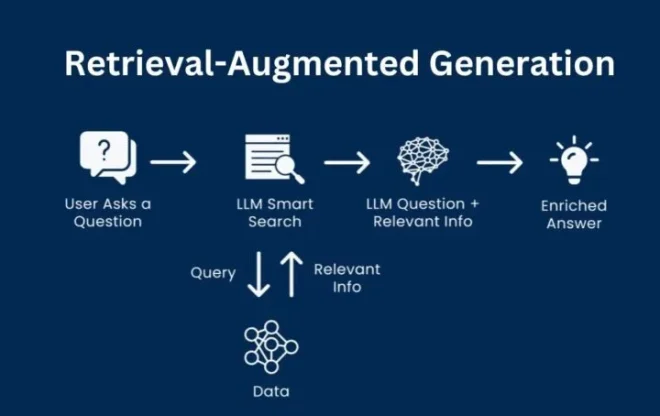Currently Empty: ₹0.00
Master Software Testing with JS Academy – Your Path to Becoming a Testing Pro!
In today’s rapidly evolving IT industry, software testing has become one of the most critical phases in software development. It ensures that the product is reliable, secure, and meets the expectations of the end user. Whether you are just starting your journey in software testing or are a seasoned professional, having the right guidance is crucial to staying competitive.
At JS Academy, we aim to equip aspiring testers and professionals with the knowledge and tools required to excel in the world of software testing. In this blog, we’ll explore the core areas of software testing, the skills needed, testing certifications, trending tools, and how to build a career in testing.
1. Understanding Software Testing Fundamentals
Before diving into tools and advanced concepts, it’s essential to grasp the basics. Software testing involves verifying and validating that a software product meets its requirements and works as expected.
What is Software Testing?
Software testing is the process of identifying bugs, defects, and errors in software to ensure its quality. It can be classified into two main types:
- Manual Testing – Testing performed without automation tools.
- Automation Testing – Using scripts and tools to perform tests faster and more efficiently.
Why is Software Testing Important?
- Ensures a high-quality product.
- Reduces maintenance costs by catching defects early.
- Improves user satisfaction and business reputation.
Types of Software Testing
Here are some of the most common types of software testing:
- Unit Testing – Testing individual components or modules.
- Integration Testing – Verifying the interaction between different modules.
- System Testing – Evaluating the entire application as a whole.
- Acceptance Testing – Checking if the product meets business requirements.
Five More Blocks to Enhance Your Knowledge:
- Performance Testing: Ensure that your application can handle high traffic and large volumes of data without slowing down.
- Security Testing: Identify vulnerabilities to protect the application from potential attacks.
- Usability Testing: Focus on user experience and interface efficiency.
- Compatibility Testing: Check the app’s performance across different devices, browsers, and operating systems.
- Regression Testing: Ensure that new code changes do not break existing features.
2. Top Software Testing Tools You Should Know
Automation and tools have revolutionized software testing, making it faster and more accurate. For a successful career in testing, you must be familiar with leading tools in the industry.
Popular Testing Tools
- Selenium – The most widely used tool for web automation testing.
- JMeter – A performance and load testing tool.
- Postman – For API testing.
- Appium – Automation testing tool for mobile applications.
- Cucumber – Supports Behavior-Driven Development (BDD).
Five Additional Tools to Boost Your Skills:
- TestNG: A robust testing framework inspired by JUnit and NUnit.
- QTest: A test management platform for collaboration and reporting.
- Katalon Studio: Simplified automation testing for web, mobile, and APIs.
- Ranorex: An all-in-one automation tool for desktop, web, and mobile.
- SoapUI: A functional testing tool for web services and APIs.
3. Must-Have Skills for a Career in Software Testing
Technical expertise is vital, but it’s not the only skill required in testing. To succeed, testers need a blend of hard and soft skills.
Essential Skills for Testers
- Analytical and Logical Thinking: Helps in identifying edge cases and potential defects.
- Attention to Detail: Small errors can lead to big issues.
- Knowledge of Programming: Especially for automation testers (e.g., Python, Java).
- Understanding of Agile and DevOps: Testing is an integral part of these practices.
- Communication Skills: Testers need to document and communicate their findings clearly.
Five More Skills to Cultivate:
- Risk Assessment: Identify high-priority areas for focused testing.
- SQL Knowledge: To verify data integrity in databases.
- Scripting and Automation Skills: For advanced automation scenarios.
- Collaboration Skills: Work effectively with developers, product managers, and other stakeholders.
- Continuous Learning: Stay updated on the latest trends and tools in testing.
4. Testing Certifications to Advance Your Career
Certifications can add credibility to your profile and boost your chances of getting hired. They validate your skills and show your commitment to continuous learning.
Top Software Testing Certifications
- ISTQB (International Software Testing Qualifications Board) – A globally recognized certification.
- Certified Agile Tester (CAT) – Focuses on testing in Agile environments.
- CSTE (Certified Software Tester) – A professional-level certification for testers.
- CSQA (Certified Software Quality Analyst) – For quality assurance professionals.
- AWS Certified DevOps Engineer – Useful for testers working in cloud environments.
Five More Certifications to Explore:
- Automation Anywhere Certified Advanced RPA Professional: Focuses on robotic process automation.
- Advanced Level Test Analyst (ISTQB): For experienced testers.
- Certified Mobile Application Tester (CMAT): Specializes in mobile testing.
- Scrum Master Certification: Helps testers working in Scrum teams.
- DevOps Foundation Certification: For those working in DevOps environments.
5. Building a Successful Career in Software Testing
The demand for software testers is growing rapidly. With the rise of automation, cloud computing, and mobile applications, skilled testers are more valuable than ever.
Tips to Build Your Testing Career
- Start with the Basics: Master manual testing before moving on to automation.
- Learn One Programming Language: Python or Java is highly recommended.
- Get Hands-On Experience: Work on real-world projects to build your portfolio.
- Network with Industry Professionals: Join forums, attend webinars, and participate in testing communities.
- Keep Learning: The testing field is always evolving. Stay updated with the latest tools and techniques.
Five More Career Tips:
- Work on Open-Source Projects: Gain practical experience and contribute to the community.
- Focus on a Niche: Specialize in areas like performance testing, security testing, or mobile app testing.
- Build a Personal Brand: Share your insights on LinkedIn or start a blog.
- Seek Mentorship: Learn from experienced professionals in the field.
- Attend Conferences and Workshops: Stay ahead of industry trends.
Conclusion
Software testing is a dynamic field with endless opportunities for growth. Whether you’re a beginner or an experienced tester, there’s always something new to learn. At JS Academy, we’re here to help you every step of the way.
Join us to master the latest testing techniques, tools, and practices, and take your testing career to the next level!




